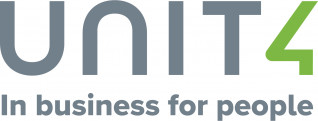One of the most significant opportunities being missed by most organizations today is the lack of a competency talent framework. I’ve always believed that the only true business differentiator is the competency of your organization. Everything else can typically be easily duplicated with financial resources.
The exact opposite is true for people. They are complex and require a great deal of effort and energy, however, if you can tap into their talents and keep them engaged in building their strengths, you will flourish. History has proven this time and time again.
When it comes to the term competency, it’s often confused with other words like talent, strengths, or skills. By definition, a competency is where, motivation, knowledge, and skill meet. A competency can be a talent and it can certainly be a strength, so let’s not get too hung up on the term. The goal is to identify the critical or core competencies that are drivers of your organization’s success. Typically, I encourage the organization to select anywhere from 8-12 competencies – more than 12 becomes difficult to manage.
Once they’ve been identified and agreed upon,(this requires feedback from all levels of the organization), you can then start to incorporate them into the other systems and processes that drive your talent framework – selection, performance management, succession planning, personal development, and organizational values. These competencies also become an integral part of your culture.
Marcus Buckingham, the author of, Go Put Your Strengths To Work, also advocates focusing on the people’s strengths and not their weaknesses. What I found compelling about his work was that it aligned with my experiences as a leader.
Most performance review processes focus on improving someone’s weakness but rarely have I seen an improvement. However, if they focused on a strength, I would see great strides being made. Even Dan Pink discussed this when he identified what motivates individuals – Mastery, Autonomy, and Purpose. The mastery of skills is aligned with focusing on strengths and that’s aligned with what Malcolm Gladwell shared in his book, Outliers, where he wrote that “ ten thousand hours is the magic of greatness.”
If you are going to build a competency-based organization, make certain that the learning opportunities you provide are tied to those competencies and incorporate them into everything you do.
On a final note, I’d like to suggest another philosophical opportunity. Would you hire a person that wasn’t willing to develop or improve themselves? You probably will tell me that you wouldn’t but we do it all the time. One important criterion that is missed in the selection process is assuring newcomers that if they join your organization, they have to be willing to continue to learn and develop. If not, why would you hire them?
If the competence of your employees is a business differentiator everyone has to be willing to continue to learn.
John Prpich, TalentBlueprint


.jpg)





